This is interesting. It appears that THC acts directly on the proteins involved in Alzheimers.
This has not happened before.
Slowly but surely, we are getting the science done.
This has not happened before.
Slowly but surely, we are getting the science done.
THC Removes Toxic Protein that Causes Alzheimer’s from the Brain
By Diane October 15, 2019 07:37
https://www.askaprepper.com/study-thc-removes-toxic-protein-that-causes-alzheimers-from-the-brain/
We’ve long had anecdotal evidence of THC helping Alzheimer’s patients, but now we have several scientific studies on the subject that show evidence that THC has a beneficial effect on Alzheimer’s plaques. THC could be a good treatment option, attacking Alzheimer’s disease in multiple ways.
The first study, titled The Potential Therapeutic Effects of THC on Alzheimer’s Disease was published in 2014 and got little fanfare. This study is behind a paywall, but you can read the abstract details at the link above. Hopefully, the information presented here will be enough to help you decide whether you should study this more thoroughly.
What Causes Alzheimer’s Disease?
Alzheimer’s disease is a neurodegenerative disease that is believed to be caused by the accumulation of amyloid proteins, which cause nerve cell death.
The build-up of these proteins triggers a toxic inflammatory response that begins the process and eventually leads to brain and nerve cell death. Currently, there are no drugs that significantly affect this process.
How Does THC Help Alzheimer’s Patients?
In addition to the 2014 study mentioned above, a 2016 study titled Amyloid Proteotoxicity Initiates an Inflammatory Response Blocked by Cannabinoids further tested the effect of THC on the amyloid proteins that build up in Alzheimer’s patients.
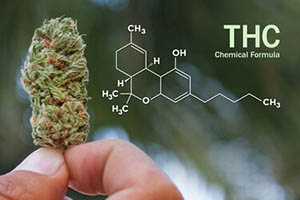
While the exact relationship between the amyloid protein, aging, and neurodegeneration is not well known, the study showed that cannabinoids, such as the tetrahydrocannabinol (THC) found in marijuana plants, stimulates the body to remove the amyloid proteins and block the inflammation. This action protects the brain and nerve cells from further damage.
These amyloid proteins are found in many age-related and in neurodegenerative diseases, such as Parkinson’s and Huntington’s diseases. Unfortunately, the inflammatory response and the amyloid plaques are well developed before the onset of the disease is recognized. One key to preventing these diseases with THC will probably be recognizing the buildup of amyloid proteins and preventing them long before symptoms occur.
Long-term use of cannabinoids in a mice study prevented inflammation of the nerves, lowered the amyloid proteins in the body, and improved memory and cognition. Anecdotal evidence shows that THC is the helpful cannabinoid, not just

the CBD.
The best method for use is to ingest full extract cannabis oil that contains the additional cannabinoids as well. Use it as an herbal supplement to protect the neurons and rid the brain of the amyloid protein that causes Alzheimer’s disease.
What Is THC?
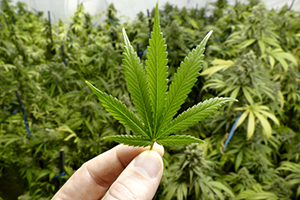
You are probably already familiar with THC and the way it affects the body. THC is the compound in marijuana responsible for the psychological effects, including the high. It has natural pain-relieving properties and is being used quite effectively to alleviate the negative effects of chemotherapy, HIV, chronic pain, PTSD, and even strokes. Researchers are increasingly testing THC for treating many diseases and are working on ways to produce synthetic versions in mass.
Our body has special receptors, known as cannabinoid receptors, CB1 and CB2. These receptors are found on the surface of cells all over the body. In the brain, they are concentrated in areas associated with pleasure, memory, coordination, critical thinking, and time perception. Cannabinoids, including THC, bind with lipids in the brain to promote signaling between nerve cells.
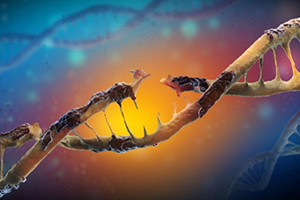
THC binds to these receptors and interferes with the brain’s signaling. This can be a bad thing when it interferes with your ability to perform on the job or think clearly. However, it can also be a good thing, if it restores normal function in damaged nerves or those that have been deprived of cannabinoids.
While, it is not completely clear what causes Alzheimer’s disease, studies have linked inflammation in the brain tissue to the formation of plaques and neurofibrillary tangles, caused by amyloid proteins. The research shows that THC has a beneficial effect on aging brains by helping to clear out the amyloid proteins that cause brain inflammation, plaques, memory loss, and the effects of aging.
This research is promising for patients suffering from neurodegenerative diseases of any kind. More studies are obviously needed, but results are promising and we may be on our way to an effective treatment for Alzheimer’s, Parkinson’s, Huntington’s, and other neurodegenerative diseases. Currently, big pharma companies are working with similar compounds and synthetic THC to try to find patentable cures.
Will THC Reverse Alzheimer’s Disease?
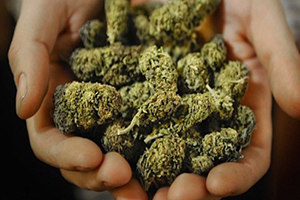
It is far too early to predict where this research will take us. It is possible that at some point in the future we may be able to reverse Alzheimer’s disease.
Currently, the best results are found in patients who are in the early stages of the disease, before the amyloid plaques and tangles are extensive. The answer may lie in dosages or in catching Alzheimer’s disease before the symptoms even appear.
Additionally, anecdotal evidence suggests that some strains of marijuana may be more effective in treating Alzheimer’s disease than others.
What Do Doctors Say?

Marijuana treatments are a very controversial topic in the medical field. Some well-respected doctors are recommending THC for their Alzheimer’s patients, while others are concerned about long-term effects and potential addiction.
As medical marijuana becomes more accepted across the country, we will likely see more research and more information available about its use. If you live in a state that allows medical marijuana, talk to your doctor about its potential use for the treatment of Alzheimer’s. If you want to try THC treatments, you will be able to find supportive doctors who can coordinate your treatments and advise you.
It is important to discuss any herbal product you use with your doctor and THC is no exception. It can interfere or affect other medications that you are taking. Do you know anyone trying THC as a treatment for Alzheimer’s? If so, please give us an update in the comments below.
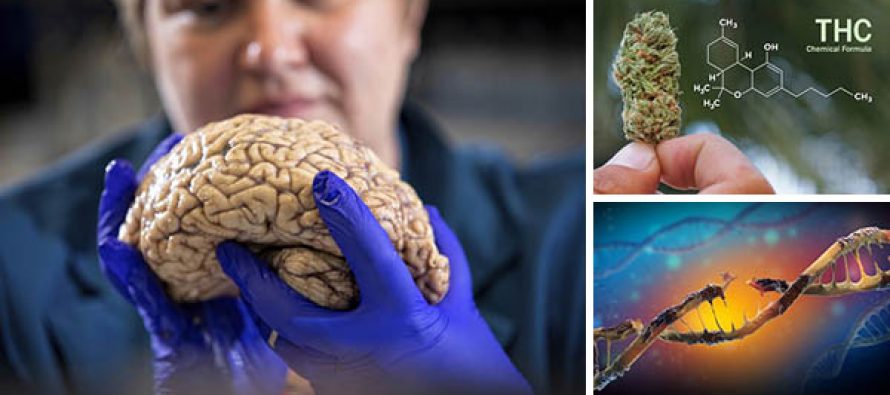
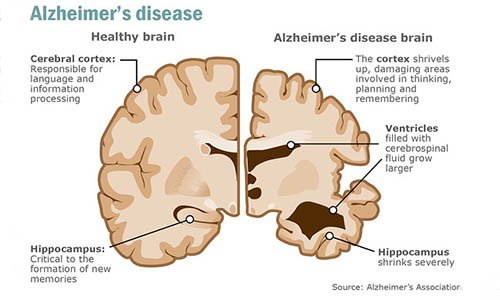
1 comment:
Very informative and interesting. On a side note, I for one can say the THC/CBD combination sure helps me with occasional anxiety I experience in some of life's difficult situations. ...making sure not to over-medicate!
Post a Comment